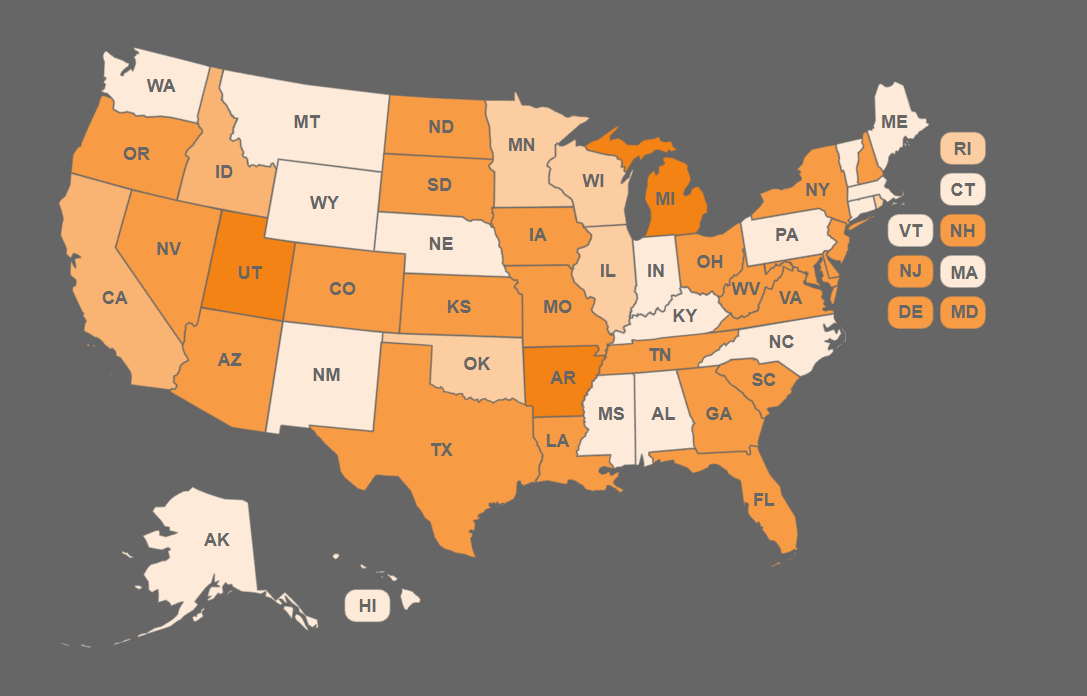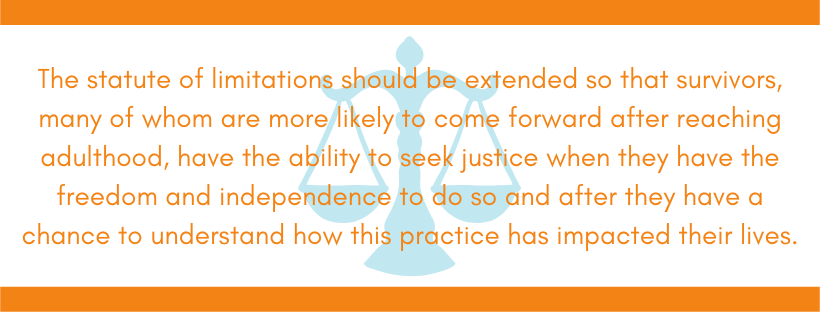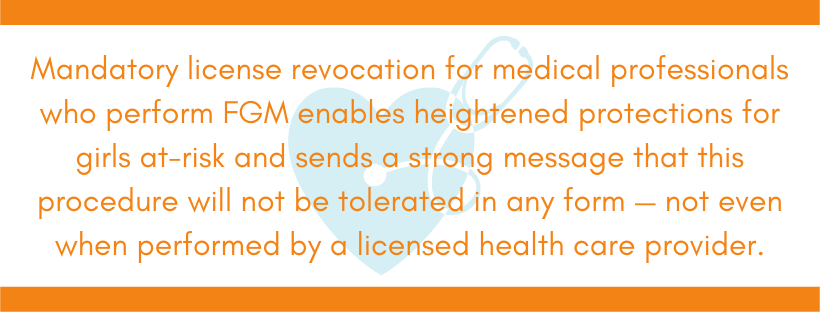30 States Have Inadequate Anti-FGM Legislation. Here’s What They Can Do to Make the Grade.

Over the past two decades, the number of girls estimated to have undergone or be at risk of female genital mutilation (FGM) in the U.S. has quadrupled, yet legal protections at both the state and federal level remain unjustifiably inadequate.
There are a number of reasons behind this legislative gap – lack of political will, well-meaning but misguided cultural sensitivities, or lack of awareness about the pervasiveness of FGM on American soil. In states with existing but inadequate laws, it may also be that we have developed more legislative solutions to the problem of FGM since these laws were initially passed, and state laws just haven’t kept pace with those developments.
The first-ever U.S. federal prosecution of an FGM practitioner began in 2017, over 20 years after this child abuse was criminalized by Congress. Sadly, in 2018, the presiding judge dismissed key charges against the defendants due to a challenge to the law’s constitutionality.
Of the 33 states that possess anti-FGM legislation, all but three have failed to adopt provisions that are comprehensive enough to support survivors, institute preventative mechanisms, and send a strong message that this practice is not tolerated in the U.S.
If your state has an inadequate anti-FGM law, that means its legislation does not contain one or more protections for vulnerable women and girls. These protections include:
FGM is an extraordinarily traumatizing and violative form of child abuse. Every person responsible for having this procedure carried out should have to answer for their involvement, regardless of his or her cultural background and relationship to the victim.
We also know from working with families from impacted communities that those who have reservations about having their daughters cut can and do use existing legislation to repel pressures from family or community members pushing them to continue the practice.
AHA Foundation has been at the forefront of the battle against FGM in the U.S. for over ten years. Our team has worked diligently to devise model legislation that offers the holistic solutions and heightened standards necessary to finally end this heinous practice.
Interested in helping pass anti-FGM legislation, or strengthening anti-FGM laws in your state? Find our model legislation below and see what your state is missing.









